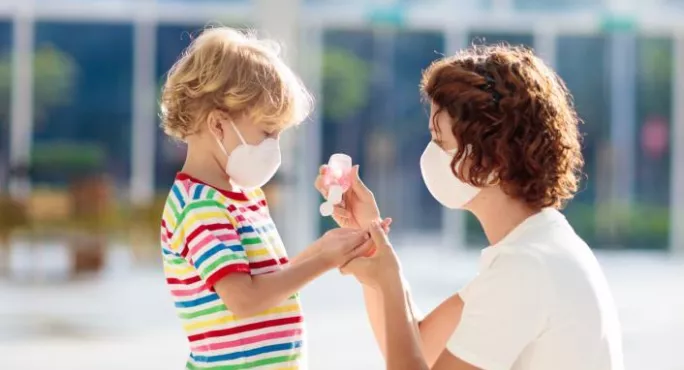Why can’t we ask primary pupils to wear masks?

Watching from overseas, it was interesting to see the UK government outline its plans to resume full in-school teaching in England from 8 March.
One of the most notable new rules outlined was the need for students and teachers to wear masks in the classrooms in secondary settings. It seems a sensible move in the short term and helps offer another layer of protection in the fight against Covid-19.
However, I found it strange that it will not be something required of primary pupils or staff - even though many UK-based teachers and parents on Twitter seemed relieved to hear this, with most convinced mask-wearing in primary school wouldn’t work.
Covid: Why don’t primary pupils wear face masks?
Pupils couldn’t cope with it, they say; they would forget; little ones would fiddle with them; they would be more trouble than they were worth; it would just be wrong to ask them to wear masks.
This is in complete contrast to those who are currently working overseas (of whom I am currently one): for us it is the norm that primary school children wear masks - sometimes from as young as two years old.
They do not forget them, lose them or any of the other reasons given: rather, the fact that everyone is wearing masks creates positive peer pressure.
My elder daughter (age 4) wears a mask to pre-school each day, and, indeed, every time we go out anywhere. It is just something she does, like all of her peers, and is part of our routine - it isn’t even discussed.
In part, it is a cultural issue.
Mask-wearing works because society as a whole accepts that it is necessary. Everyone wants the same outcomes: a return to a safe school experience, as soon as is possible. Healthy children and staff. Outdoor breaktimes. Extracurricular activities and so on.
This has helped to keep cases down because everyone - young children included - is playing their part in this.
Here in Malaysia, the total number of cases since the beginning of the pandemic stands at 295,951 - 266,846 of whom have recovered. There have been 1,111 deaths across the whole country.
This isn’t solely due to young children wearing masks, of course - but it certainly helps. After all, we know that younger children are usually asymptomatic but still spread the disease.
It works in other countries
Given all this, I find it strange to suggest that primary school pupils wouldn’t cope with wearing a mask when evidence from other nations shows it can work. If here, why not in the UK?
After all, for teachers returning to full class teaching, without the prospect of a vaccination for some time yet, anything that reduces the chance of infection should be embraced.
Yet, for now, this is being ignored - but this seems like an oversight. A positive herd mentality is called for, now that children of all ages are returning to school - which, if we’re honest, most of them (and their teachers) are craving.
As the UK begins the process of emerging from lockdown, it would be comforting to hear of similar routines being adopted by all primary schools, not just a handful.
Children will not be irreversibly damaged by wearing a mask - rather, let them help by doing this one thing.
It will help to protect the health of their teachers as well as their peers and continue to ease the pressure on the NHS.
Chris Barnes is an experienced school leader in international and UK independent schools. He currently works in Johor Bahru, Malaysia. He tweets @MrBarnesTweets
Register with Tes and you can read two free articles every month plus you'll have access to our range of award-winning newsletters.
Keep reading with our special offer!
You’ve reached your limit of free articles this month.
- Unlimited access to all Tes magazine content
- Save your favourite articles and gift them to your colleagues
- Exclusive subscriber-only stories
- Over 200,000 archived articles
- Unlimited access to all Tes magazine content
- Save your favourite articles and gift them to your colleagues
- Exclusive subscriber-only stories
- Over 200,000 archived articles